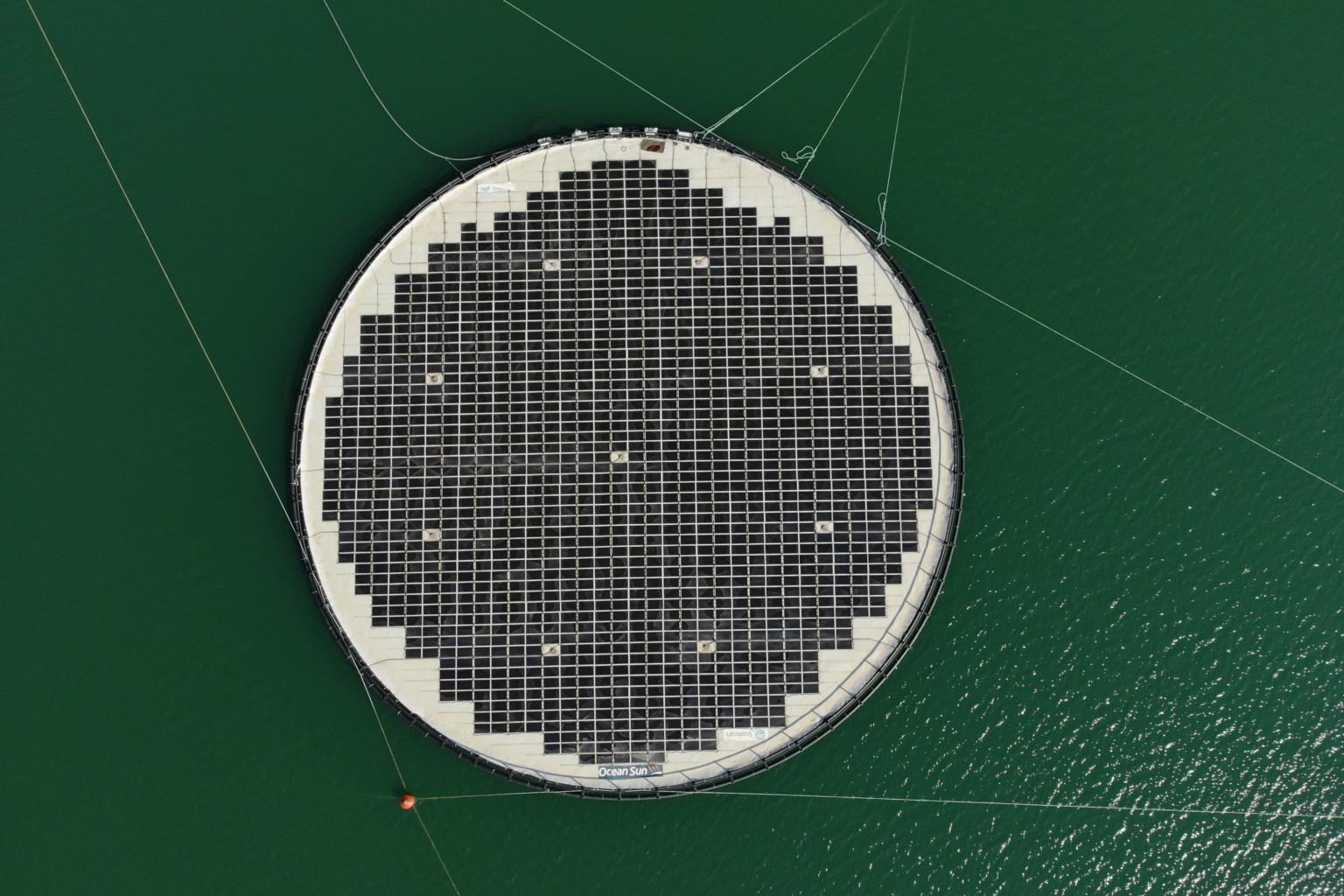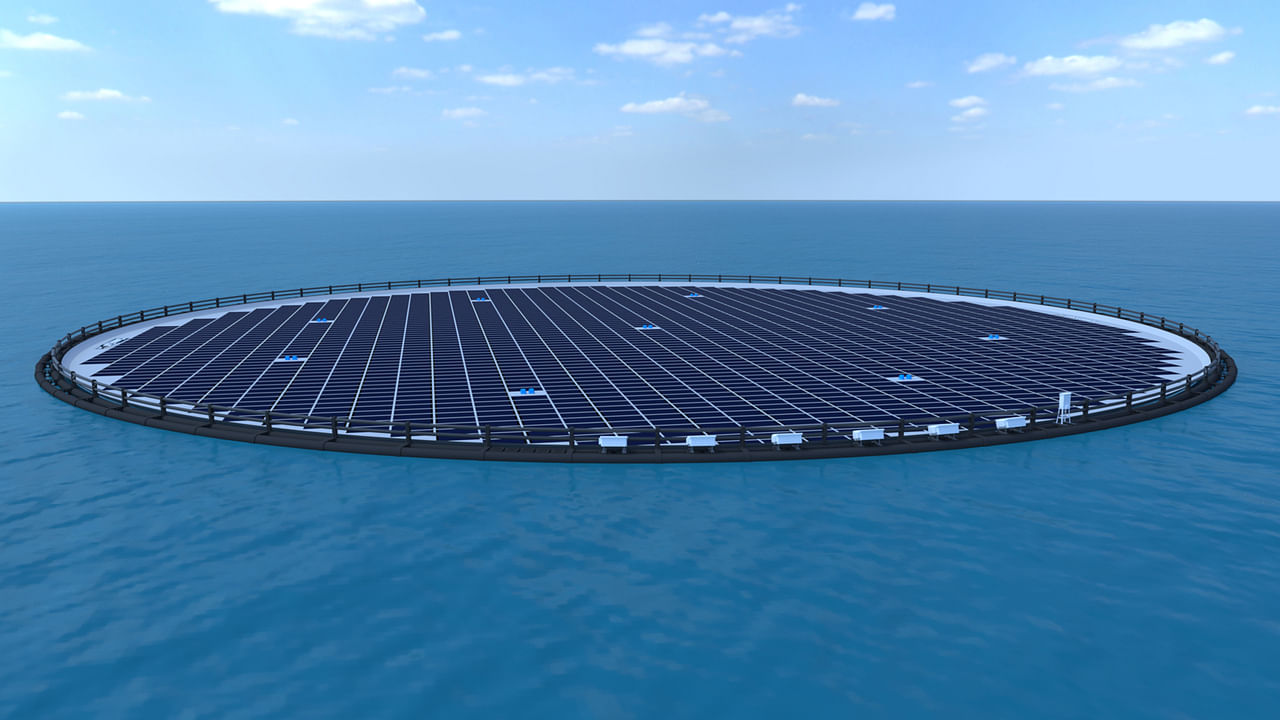Floating solar panels at sea part of S'pore's $6m investment in clean energy tech on Jurong Island
Sign up now: Get ST's newsletters delivered to your inbox

An example of Ocean Sun's floating solar system that can be placed at sea. This will be trialled by Keppel on Jurong Island.
PHOTO: OCEAN SUN
Follow topic:
SINGAPORE - While the Republic has made great strides in increasing its solar capacity through the building of floating solar farms at reservoirs, it is now piloting a new type of floating solar panel system that can be placed at sea.
The new system is designed by Norwegian solar firm Ocean Sun to withstand stronger waves and rougher conditions associated with marine environments so that solar energy can be harnessed reliably. It is being tested by conglomerate Keppel's subsidiary, Keppel Energy Nexus.
The pilot will generate 1.5 megawatt-peak of solar energy and will be constructed close to shore on Jurong Island, said the Energy Market Authority (EMA), JTC and Enterprise Singapore in a joint statement on Friday (July 15).
The project was one of three awarded a total of $6 million in grants to test new, clean energy solutions on Jurong Island.
Speaking at the Energy Innovation 2022 conference on Friday at Marina Bay Sands, Minister of State for Trade and Industry Low Yen Ling said that the power sector currently accounts for 40 per cent of Singapore's carbon emissions, and a move to reach net-zero by 2050 will require collaboration from all of society - including the Government, industries and businesses.
Making Jurong Island a more sustainable energy and chemical park is part of the efforts to reach net-zero emissions, said the agencies in their statement on Friday.
Ms Janice Bong, executive director of power and renewables at Keppel Infrastructure, a subsidiary of Keppel, told The Straits Times that the project makes use of unutilised sea space on Jurong Island. She added that the project could be scaled up and replicated in other sea spaces both in Singapore and in the region if it is successful. The pilot is expected to be ready by the fourth quarter of next year.
Keppel said in a separate statement that conventional floating solar systems here are kept afloat with multiple floating units and are generally deployed in calmer water bodies such as reservoirs.
The systems at sea, however, are innovative in that they are designed in such a way that the solar panels are placed directly on a membrane, which is buoyed and protected by high-density pipes surrounding the membrane, said Ms Bong.
Other projects supported by the grant are an energy storage system that repurposes recycled industrial waste, and a project to support the production of green hydrogen.
The awarded projects were selected based on their innovativeness, commercialisation potential and scalability, said the agencies.
Separately, two local start-ups have been awarded grants to enhance and test their sustainable solutions in underwater infrastructure inspection and the production of green hydrogen.
The award is part of an $8 million partnership between EMA and oil giant Shell, with support from Enterprise Singapore.
While Singapore has made huge investments in clean energy sources, it is also funding research to ensure its power grid can adapt to various sources of clean energy while ensuring its reliability and stability.

EMA and the Singapore Institute of Technology (SIT) on Friday also launched its second grant call for research and development proposals in next-generation energy technologies.
Funds from the $20 million Exploiting Distributed Generation programme, which was started in 2019, will be used to develop innovative projects that will boost Singapore's power engineering capabilities - such as in the generation, distribution and utilisation of electric power.
Successful grant applicants will be able to test their solutions on SIT's multi-energy microgrid at its future Punggol campus to be ready in 2024.
The microgrid serves as a platform for tests to be conducted under real-world conditions.

